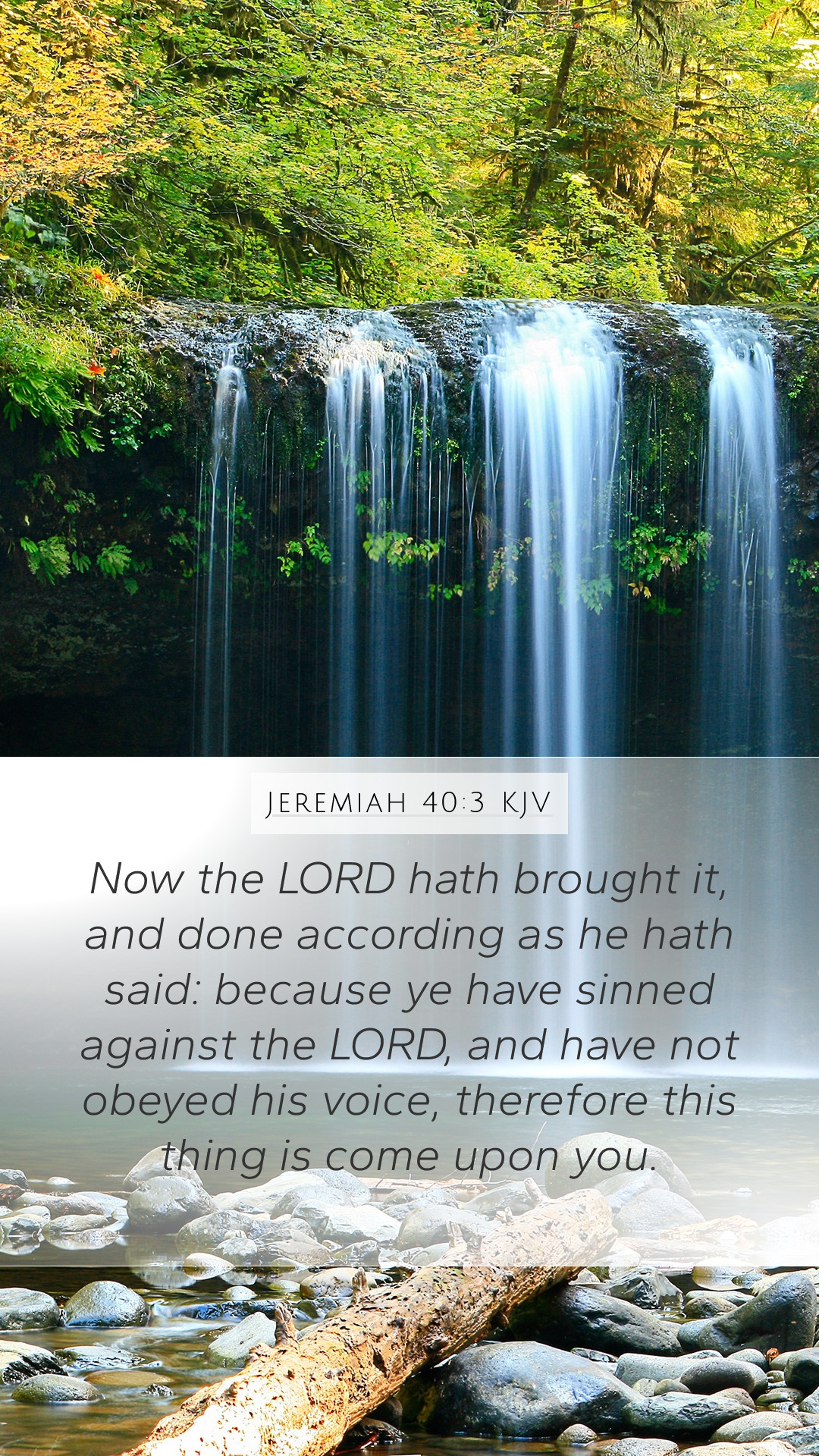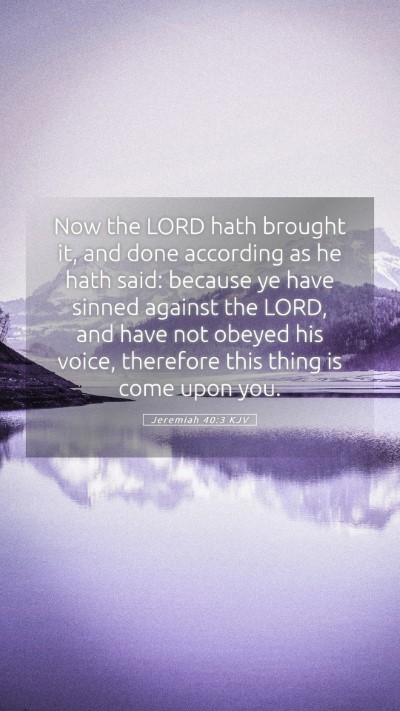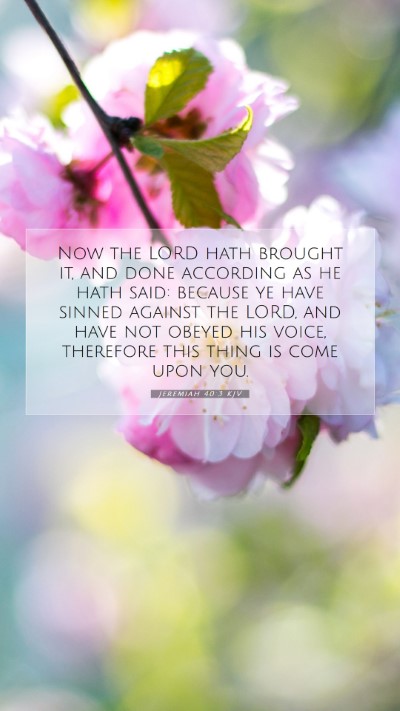Understanding Jeremiah 40:3
Verse: "Now the Chaldeans had taken the city, and killed the men and women; and the rest were carried away into captivity. And he caused the poor to be left in the land." (Jeremiah 40:3)
Bible Verse Meanings
The verse from Jeremiah 40:3 encapsulates a moment of profound transition in Israel’s history. After the destruction of Jerusalem, the remaining inhabitants faced dire circumstances. The insights from various public domain commentaries help us unpack its deeper meanings.
Bible Verse Interpretations
According to Matthew Henry's Commentary, this verse reflects God's judgment upon Jerusalem due to its persistent idolatry and disobedience. The mention of the Chaldeans signifies the conquering forces representing divine wrath; this event was not a mere military conquest but a consequence of the people's spiritual failings.
Adam Clarke expands on this by noting that the remaining inhabitants, labeled as 'poor', signify God's mercy. He left behind those who were not seeking wealth or power but were instead vulnerable and powerless. This action can be seen as God’s intention to preserve a remnant amidst judgment, allowing for a possibility of restoration and hope.
Bible Verse Understanding
This verse can also be seen as an illustration of the theme of God's sovereignty throughout the Book of Jeremiah. It serves as a reminder that God is always in control, even during tumultuous times. Clarke posits that this message would resonate deeply with the exiled community, being a testament that God has not abandoned them.
Bible Verse Explanations
- Historical Context: This verse is steeped in historical context as it points to the Babylonian exile period, an essential epoch in Jewish history.
- Prophetic Significance: Albert Barnes notes that the preservation of the poor reflects the prophetic nature of Jeremiah's messages – that a remnant would survive for future restoration.
Scripture Analysis
Analysing Jeremiah 40:3 through a hermeneutical lens invites us to explore the various themes of loss, judgment, and hope. This verse can be a vital reference for understanding the painful consequences of sin and the potential for divine mercy.
Biblical Exegesis
Exegesis of this passage focuses on its implications for both the historical community and contemporary readers. The portrayal of the 'poor' left in the land symbolizes hope for the disadvantaged, indicating that they are integral to God's redemptive plan.
Bible Study Insights
As you approach this verse in a Bible study group setting, consider questions regarding personal application. Ask how God preserves the vulnerable in our society today and what these 'poor' might represent in our context.
Cross References
- Jeremiah 29:10-11: Promises of restoration.
- Ezekiel 37:21-22: Prophecy concerning Israel's reunification.
- Isaiah 10:20-22: A remnant will return.
Conclusion
In conclusion, Jeremiah 40:3 serves as a poignant reminder of the balance between judgment and mercy. The combined insights from Matthew Henry, Adam Clarke, and Albert Barnes provide a rich understanding of this scripture, demonstrating its relevance in individual lives and the broader biblical narrative.
Further Study Suggestions
To deepen your understanding of this text, consider exploring additional Bible study resources or engaging in online Bible study courses that focus on prophetic literature and its implications for faith and practice.


